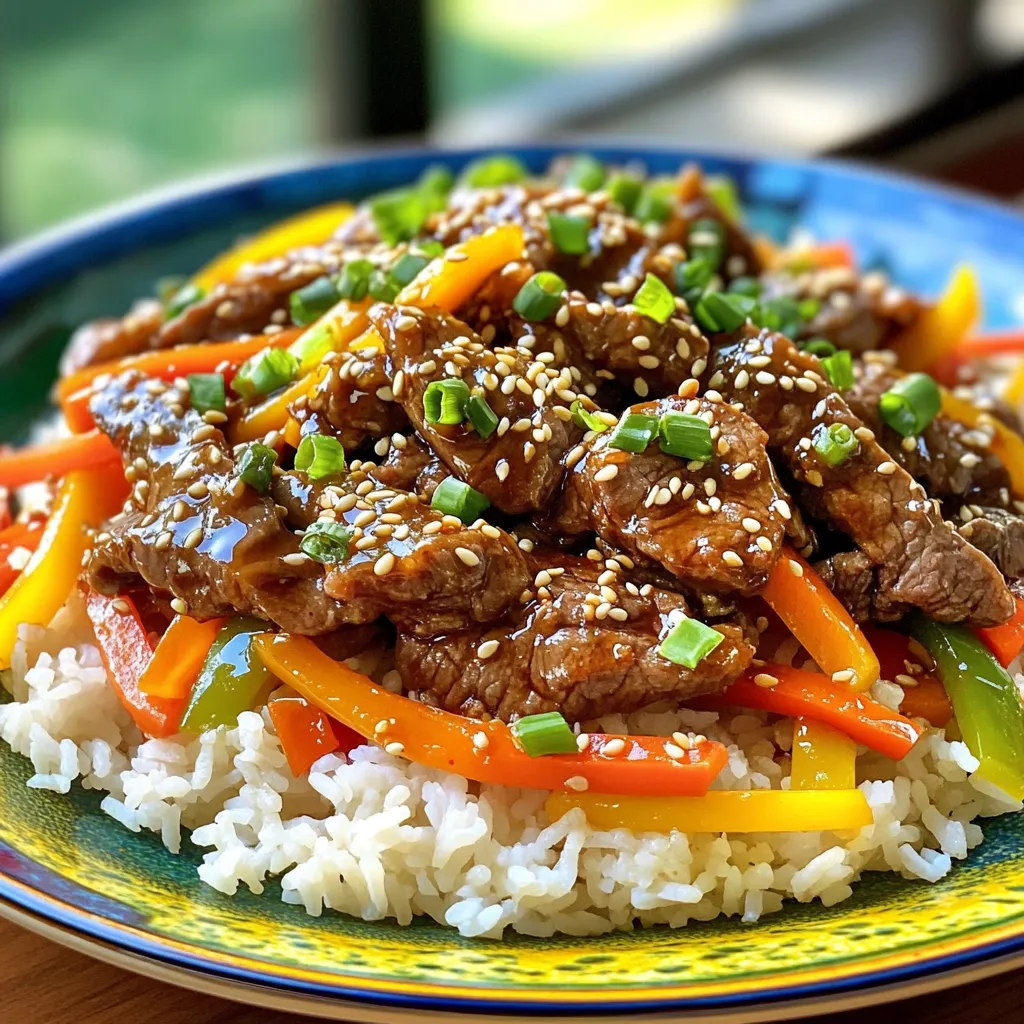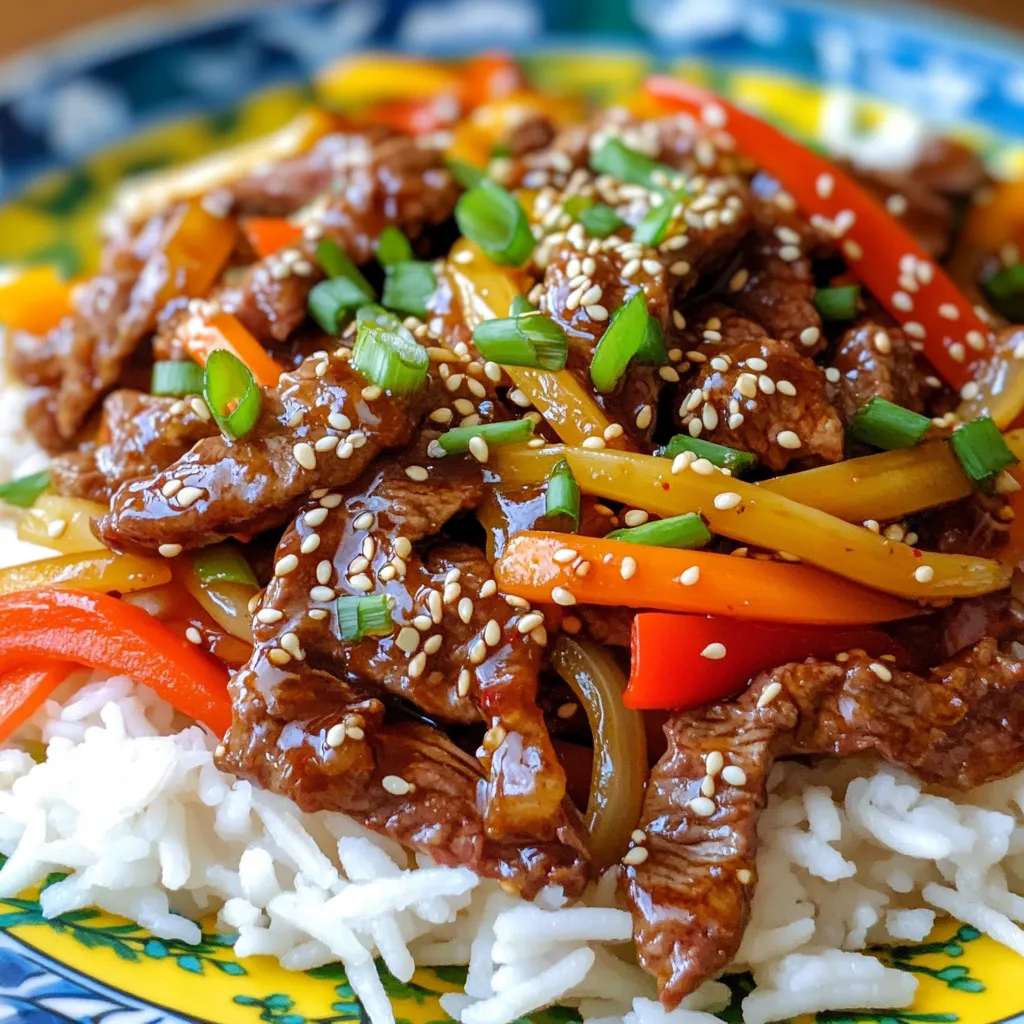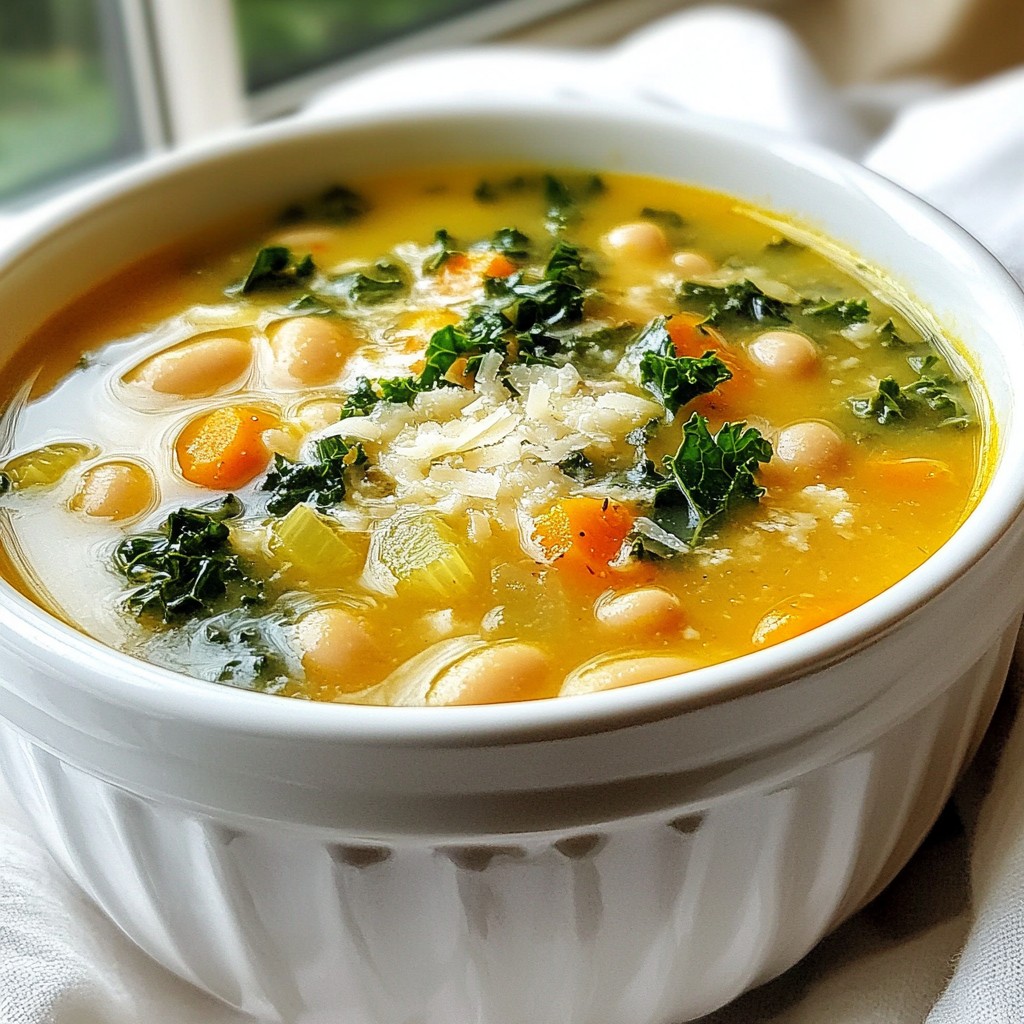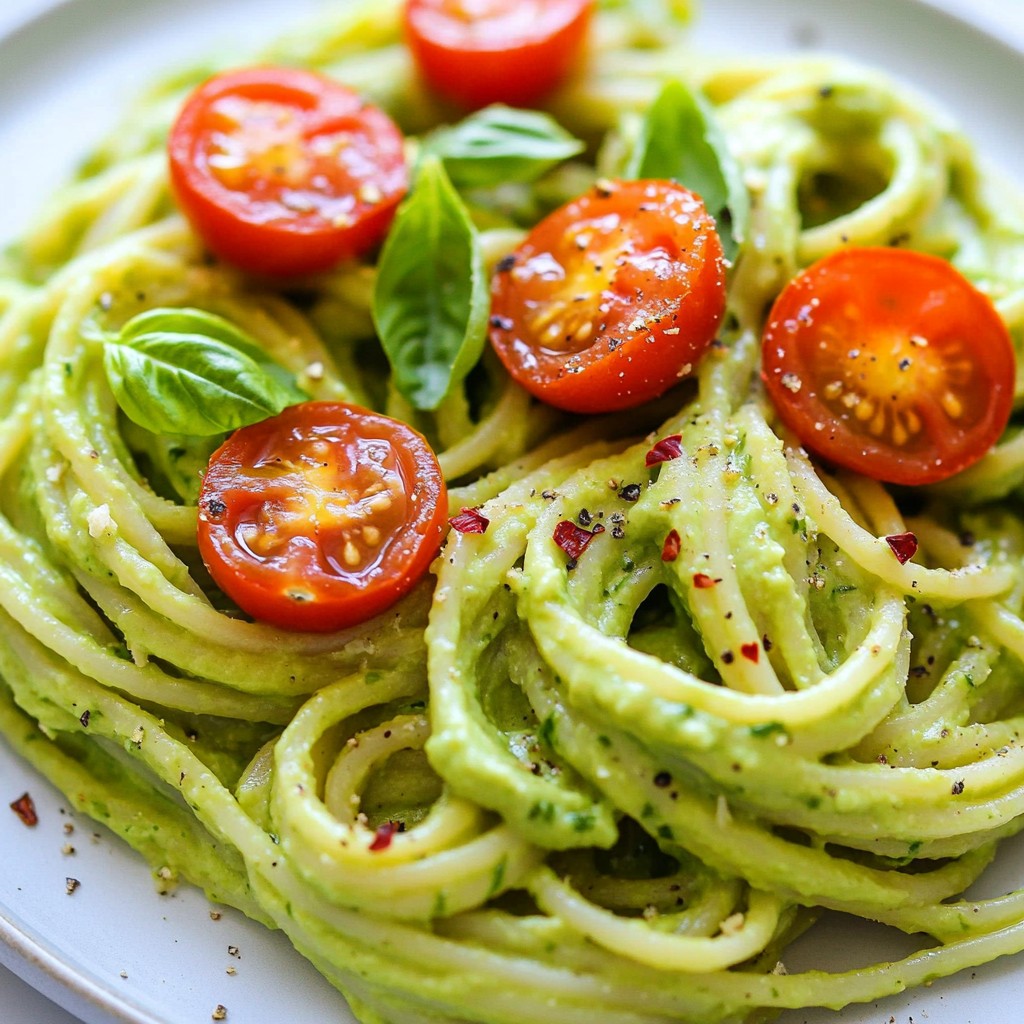Are you ready to spice up your weeknight dinners? With my easy Korean Beef Bulgogi recipe, you can enjoy bold flavors better than takeout. This dish is quick to make and packed with tasty ingredients. I’ll guide you through each step and share tips to get your meal just right. Let’s dive in and discover how homemade Bulgogi can become your new favorite dish!
Ingredients
List of Ingredients for Korean Beef Bulgogi
– 1 lb (450g) thinly sliced beef sirloin
– 1/4 cup soy sauce
– 2 tablespoons brown sugar
– 1 tablespoon sesame oil
– 1 tablespoon grated ginger
– 3 cloves garlic, minced
– 2 tablespoons green onions, chopped
– 1/2 medium onion, thinly sliced
– 1 carrot, julienned
– 1/2 bell pepper, sliced (any color)
– 1 tablespoon gochujang (Korean chili paste)
– 1 tablespoon sesame seeds
– 1 tablespoon vegetable oil (for cooking)
– Cooked jasmine rice (for serving)
– Fresh lettuce leaves (optional, for wrapping)
Importance of Ingredient Quality
Using high-quality ingredients makes a big difference in flavor. Fresh beef brings tenderness and richness. Choose sirloin for its balance of taste and texture. Fresh veggies add crunch and color. Quality soy sauce enhances the umami flavor of the dish. Opt for low-sodium options to control saltiness. Good sesame oil adds a nutty aroma. These choices elevate your bulgogi beyond takeout.
Possible Substitutions for Key Ingredients
You can swap out beef sirloin for other meats like chicken or pork. Use tamari if you’re gluten-free. For sweetness, honey or maple syrup works well instead of brown sugar. You can replace gochujang with sriracha for heat, but adjust the amount to taste. If you don’t have sesame oil, olive oil is a decent substitute. Always feel free to get creative with your ingredient choices!
Step-by-Step Instructions
Preparing the Marinade
To start, gather a large bowl. In the bowl, mix together:
– 1/4 cup soy sauce
– 2 tablespoons brown sugar
– 1 tablespoon sesame oil
– 1 tablespoon grated ginger
– 3 cloves garlic, minced
– 2 tablespoons green onions, chopped
– 1 tablespoon gochujang
Stir these ingredients until they blend well. This marinade gives the beef its rich flavor. Don’t rush this step; a great marinade makes all the difference.
Marinating the Beef
Next, take 1 pound of thinly sliced beef sirloin. Add it to the marinade. Make sure each piece gets coated completely. Cover the bowl and let it sit for at least 30 minutes. For best results, let it marinate overnight in the fridge. This deepens the flavor and makes the beef tender.
Cooking the Beef Bulgogi
Now, heat 1 tablespoon of vegetable oil in a large skillet over medium-high heat. Once hot, add the marinated beef to the skillet. Be careful not to overcrowd the pan; cook in batches if needed. Stir-fry the beef for 3-4 minutes until it turns brown and slightly caramelized.
Next, add:
– 1/2 medium onion, thinly sliced
– 1 carrot, julienned
– 1/2 bell pepper, sliced
Continue to stir-fry for another 2-3 minutes. You want the veggies to stay crisp and colorful. Finally, sprinkle 1 tablespoon of sesame seeds over the dish and mix everything well.
Serve your beef bulgogi hot over jasmine rice or in fresh lettuce leaves for a tasty wrap. Enjoy your meal!
Tips & Tricks
Best Cooking Techniques for Perfect Bulgogi
To get the best bulgogi, use high heat. This helps caramelize the beef quickly. Always slice your beef thinly against the grain. This keeps it tender. When cooking, do not overcrowd the pan. Cook in batches if needed. This ensures even cooking and browning. Stir-fry for about 3-4 minutes. You want the beef to be juicy and flavorful.
How to Achieve the Right Flavors
The marinade is key for flavor. Use soy sauce, brown sugar, sesame oil, grated ginger, and minced garlic. Don’t forget gochujang for a spicy kick. Marinate the beef for at least 30 minutes. For the best taste, marinate overnight. The longer it sits, the deeper the flavors become. Use fresh green onions and sesame seeds for added taste. They bring a nice crunch and aroma.
Common Mistakes to Avoid
Avoid using thick beef slices. They will be tough and chewy. Do not skip the marinating step. This is what makes bulgogi special. Also, be careful not to overcook the beef. It should be cooked through but still juicy. Lastly, don’t forget to add the veggies. They add color and nutrition. If you forget, your dish will not be as vibrant.

Variations
Adding Vegetables for Extra Nutrition
You can easily boost your bulgogi’s health with veggies. Adding vegetables gives color and taste. Try thinly sliced mushrooms, zucchini, or snap peas. These add crunch and fiber. You can also add leafy greens like spinach or bok choy. Cook these with the beef for just a few minutes. This way, they keep their nutrients and flavor.
Alternative Proteins for Bulgogi
Bulgogi is not just for beef. You can use chicken, pork, or tofu as protein. For chicken, use boneless thighs for a juicy bite. Pork tenderloin works well too. Slice it thin like beef. If you prefer tofu, use firm or extra-firm tofu. Press it to remove water, then marinate and fry until golden. Each option gives a new twist to the classic dish.
Serving Suggestions Beyond Rice and Lettuce
While rice and lettuce wraps are great, there are other fun ways to serve bulgogi. You can make bulgogi tacos using soft tortillas. Top them with fresh salsa and avocado. Another idea is to serve it over a crispy salad. Use mixed greens, carrots, and sesame dressing. For a hearty dish, try bulgogi over noodles. It pairs well with soba or rice noodles. Each option makes the meal exciting and delicious!
Storage Info
How to Store Leftover Bulgogi
To keep your beef bulgogi fresh, place it in an airtight container. Make sure it cools down first. Store it in the fridge for up to three days. If you want to keep it longer, freezing is a great option.
Reheating Methods for Best Taste
When reheating bulgogi, use a skillet for best results. Heat it over medium heat. Add a splash of water or broth to keep it moist. Stir often until it’s warmed through. You can also use the microwave, but be careful not to overcook it.
Freezing Tips for Meal Prep
If you freeze bulgogi, divide it into portions. Use freezer bags or containers to save space. Squeeze out as much air as possible. When ready to eat, thaw it overnight in the fridge. This helps maintain the flavor and texture. Reheat it like fresh bulgogi for a tasty meal.
FAQs
What is Bulgogi and how is it traditionally served?
Bulgogi is a Korean dish made from marinated beef. The beef is thinly sliced and grilled or stir-fried. It has a sweet and savory flavor thanks to the marinade. Traditionally, it is served with rice, lettuce, and various banchan, which are small side dishes. You can wrap the beef in lettuce for a tasty bite.
Can I make Bulgogi with other types of meat?
Yes, you can use other meats for Bulgogi. Chicken, pork, or tofu work well too. Just adjust the marinade time based on the meat you choose. For chicken, about 30 minutes is enough. Pork may need a bit longer for flavor.
How spicy is this Korean Beef Bulgogi recipe?
The spice level in this recipe is mild to medium. The gochujang adds a nice kick, but it is not overpowering. If you prefer less spice, you can reduce the amount of gochujang. For more heat, add extra chili paste or fresh peppers.
What sides pair well with Beef Bulgogi?
Many sides go great with Beef Bulgogi. Here are some popular options:
– Steamed jasmine rice
– Kimchi
– Pickled vegetables
– Cucumber salad
– Grilled zucchini or eggplant
These sides add balance and depth to the meal, making it more enjoyable.
Korean Beef Bulgogi is a tasty dish that’s easy to make. We covered the key ingredients, marinade steps, and cooking methods. Choosing fresh ingredients is vital for great flavor. Remember to avoid common mistakes to get the best results. You can also try fun variations, like adding veggies or using different proteins. Store leftovers well to keep that delicious taste. This recipe brings a delightful Korean meal to your table. Enjoy making it your own!




